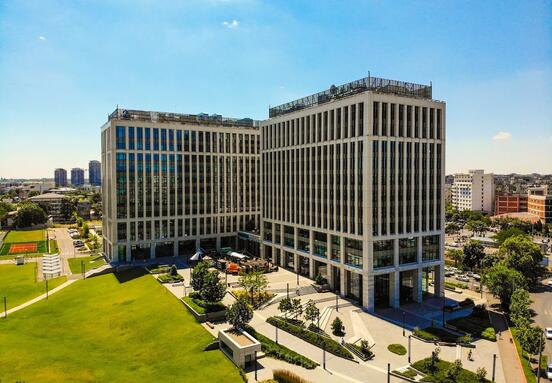"We perceive this as having an impact on the monetary, financial and macroeconomic stability. There is no way that political uncertainty, political tension can be good. As a consequence, it will affect the economic growth. To what extent distrust, financial instability affect the economic growth is not easy to calculate. We hopewe all have the wisdom to overcome these moments and benefit from an incredibly good macroeconomic framework. In 27 years, since I have been in the public sphere, I have not seen a better macroeconomic framework, with micro tensions, as are those mentioned previously, problems linked to how bankable are the Romanian enterprises, with other problems, with infrastructures that are always drawn up, but not finished, with problems on the Olt Valley for so many years, as well as the ring road of the capital," Isarescu said.
According to him, the macroeconomic framework is reflected in low interest rates and reduced inflation.
In other words, the BNR Governor brought into attention the fact that there are a series of problems in cleaning-up the companies' balance sheets.
"The clean-up of balance sheets is not done, unfortunately. You cannot separate the clean-up of balance sheets on the level of banks from the clean-up the balance sheets of companies. The biggest problems are there. The companies with Romanian capital need a sperate discussion on this topic, not rushed," he stated.
In what regards the multinational companies, Mugur Isarescu showed that the problem of transfer prices is known to him since the '70s.
"Foreign companies must comply with the Romanian legislation, observe the taxation, our rules. The problem with transfer prices was discussed as it is discussed in Europe. This isn't a simple matter anywhere in the world. I have been aware of the problem with transfer prices since the '70s . It is almost perpetual and is linked to the statute of multinationals," Isarescu explained.
Romanian producers are gradually losing domestic market share because prices erode their competitiveness, governor of the National Bank of Romania (BNR) Mugur Isarescu told a press conference on Thursday.
"I think we are having issues not necessarily with the increase of the relative importance of imports as an effect of the adjustment of consumer demand, but particularly with a clear trend of erosion of the domestic producers' price competitiveness. From this point of view we calculated the real effective exchange rate which points to a loss of competitiveness. The Romanian producers gradually lose the domestic market. We never make cost forecasts but (...) there is little room for an appreciation of the domestic currency. There is hardly such room, not to say there is none at all," Isarescu said.
According to him, domestic investments are relatively modest.
"Investments stay relatively modest. For nearly 20 months now we have had a robust economic growth, but based mainly on consumption, with a fresh revival of loans to non-financial companies. The BNR has shown on various occasions that the big problem is decapitalisation, or the low capital indicators of Romanian companies. This is where we face issues. The multinationals usually get financing from the parent company or from their home market. The issue is not that the interest rates are too high or too low," said the central bank head, pointing out that retail banks have a hard time finding bankable clients. (source: Romania-insider.com)







